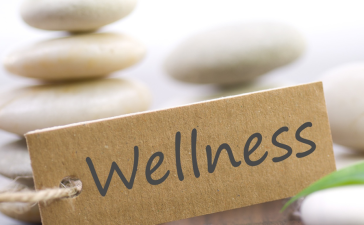In today’s fast-paced and demanding world, many people are realizing that wellness goes far beyond just avoiding illness. Wellness is a holistic concept that encompasses the balance between the mind, body, and spirit. It is not a destination but a lifelong journey toward optimal health and a fulfilling life. In this article, we explore the meaning of wellness, its key components, and practical strategies to enhance your well-being naturally and sustainably.
What Is Wellness?
Wellness is defined as the active pursuit of activities, choices, and lifestyles that lead to a state of holistic health. It involves self-awareness, intention, and consistent effort to achieve balance in various aspects of life. Unlike medical treatment, which often focuses on curing disease, wellness emphasizes prevention, self-care, and daily habits that promote long-term vitality.
The wellness movement encourages individuals to take control of their health by making conscious decisions about nutrition, exercise, sleep, mental health, relationships, and more. This proactive mindset allows people to thrive physically, emotionally, and spiritually, rather than simply existing.
The Eight Dimensions of Wellness
Holistic wellness includes eight interconnected dimensions that work together to support a healthy, balanced life:
-
Physical Wellness – Caring for your body through proper nutrition, exercise, and sleep
-
Emotional Wellness – Understanding and managing emotions in a healthy way
-
Intellectual Wellness – Expanding knowledge, skills, and creativity
-
Social Wellness – Building healthy and supportive relationships
-
Spiritual Wellness – Connecting with values, beliefs, and purpose
-
Occupational Wellness – Finding fulfillment in work and balancing career with life
-
Financial Wellness – Managing money responsibly and planning for the future
-
Environmental Wellness – Living in harmony with your surroundings and nature
To achieve true wellness, it’s important to regularly assess these areas and identify where improvements can be made.

Why Wellness Matters More Than Ever
Modern lifestyles are often hectic and imbalanced. Processed foods, sedentary habits, constant screen time, financial stress, and emotional overload all contribute to chronic diseases, anxiety, depression, and burnout. The World Health Organization (WHO) now recognizes mental and lifestyle-related conditions as leading contributors to global illness and reduced life expectancy.
Prioritizing wellness can help you:
-
Prevent chronic diseases like diabetes, heart conditions, and obesity
-
Manage stress and reduce anxiety
-
Improve sleep and energy levels
-
Enhance mood and emotional stability
-
Build stronger relationships
-
Feel more confident and motivated
-
Live longer and with greater independence
Practical Steps to Improve Wellness
1. Fuel Your Body With Whole Foods
Nutrition is one of the most powerful tools for improving overall health. A diet rich in whole, nutrient-dense foods supports everything from brain function to immune health.
Tips:
-
Eat more fruits, vegetables, legumes, whole grains, and healthy fats
-
Limit processed foods, refined sugars, and trans fats
-
Stay hydrated—aim for 2–3 liters of water daily
-
Practice mindful eating and listen to your body’s hunger cues
-
Plan and prep meals to avoid unhealthy convenience options
2. Move Your Body Daily
Physical activity doesn’t have to mean intense workouts. Movement of any kind supports cardiovascular health, strengthens muscles, boosts mood, and improves flexibility.
Suggestions:
-
Aim for at least 150 minutes of moderate activity per week
-
Choose activities you enjoy—walking, yoga, dancing, cycling, etc.
-
Add stretching or foam rolling to improve mobility
-
Take walking breaks during the workday to reduce sedentary time
-
Mix strength, cardio, and flexibility exercises for overall fitness
3. Prioritize Rest and Recovery
Rest is often undervalued in a culture that glorifies hustle. However, sleep and recovery are essential for both mental and physical regeneration.
Better sleep strategies:
-
Keep a consistent bedtime and wake-up routine
-
Avoid screens and caffeine at least an hour before bed
-
Create a cool, dark, and quiet sleeping environment
-
Practice relaxation techniques like deep breathing or meditation before sleep
-
Nap wisely—20 minutes can recharge, but long naps may disrupt nighttime sleep
4. Strengthen Mental and Emotional Health
Your thoughts and emotions play a major role in overall wellness. Taking care of your mental health is just as crucial as caring for your body.
Mental wellness habits:
-
Practice mindfulness through journaling, meditation, or deep breathing
-
Seek therapy or counseling if needed
-
Limit exposure to toxic news, social media, or negative people
-
Cultivate positive thinking and gratitude
-
Stay socially connected to trusted friends and family
5. Find Purpose and Set Goals
Having a sense of direction and meaning is vital for spiritual and emotional wellness. When we live in alignment with our values and goals, we feel more grounded and motivated.
Ideas:
-
Reflect on what gives you joy and purpose
-
Set short- and long-term personal goals
-
Volunteer or give back to causes you care about
-
Practice gratitude and forgiveness regularly
-
Spend time in nature or spiritual practices like prayer or meditation
6. Create a Healthy Work-Life Balance
Work is an important part of life, but it should not consume all your time and energy. Burnout, stress, and dissatisfaction can lead to long-term health problems.
Work-life wellness:
-
Take regular breaks during your workday
-
Set boundaries with work-related communication after hours
-
Make time for hobbies and relaxation
-
Explore career paths that align with your passions and strengths
-
Pursue ongoing learning and professional development
7. Be Mindful of Your Environment
Your surroundings can either support or sabotage your wellness journey. Clutter, noise, pollution, and even toxic relationships can drain energy and cause stress.
Enhance environmental wellness:
-
Declutter and organize your living space
-
Add calming elements like plants, candles, or soft lighting
-
Reduce use of plastics and switch to eco-friendly products
-
Spend more time outdoors for natural light and fresh air
-
Support sustainable brands and practices
Wellness Trends to Watch

In 2025, the wellness industry continues to evolve with technology and science. Some rising trends include:
-
Personalized wellness plans based on genetic or gut microbiome testing
-
Wearable devices that track sleep, movement, stress, and biometrics
-
Mental fitness apps that train focus and reduce anxiety
-
Holistic therapies like acupuncture, aromatherapy, and sound healing
-
Workplace wellness initiatives including mindfulness rooms and mental health days
These innovations are making wellness more accessible, measurable, and personalized.
Final Thoughts
Wellness isn’t about perfection—it’s about awareness, intentional living, and taking small, consistent actions toward better health. Whether you’re just beginning your journey or deepening your wellness practice, remember that every step counts.
Focus on progress, not comparison. Listen to your body. Take rest when needed. Celebrate small wins. And most importantly, treat wellness as a long-term investment in yourself. After all, your health is your greatest wealth.





